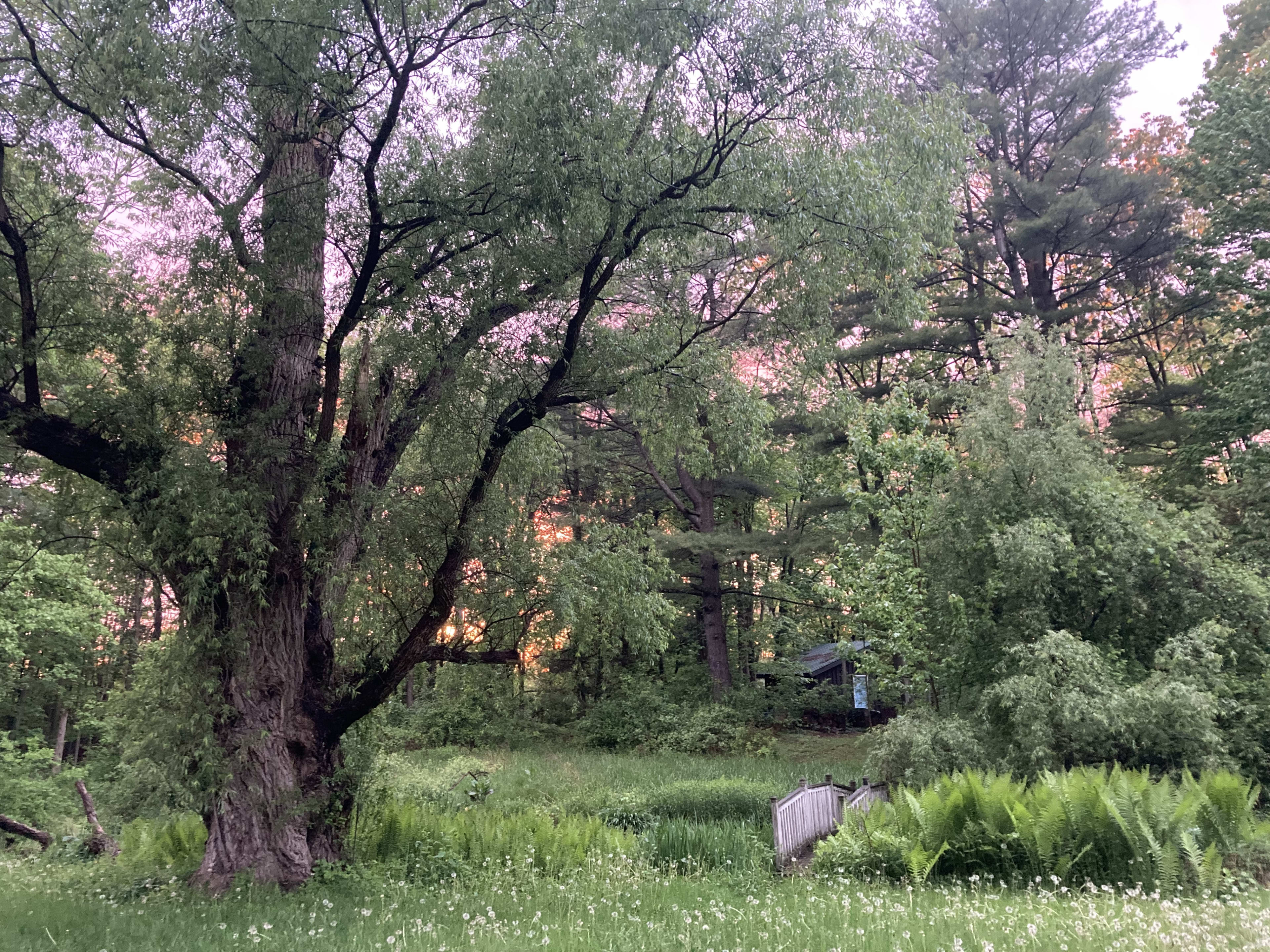
We introduce strategies for suburban, post-peak oil, sustainable transition in a living outdoor classroom with gardens, beehives, chickens, hügelkultur, mushroom cultivation, and composting. Our approach is to reintroduce simple, contemplative practices to the general public through free classes with hands on experiences with plants, projects, food, meditation, and ecology in Northeast Ithaca and Cortland County. We are all about educating people who can make changes in their own lives and the communities in which they live and become teachers and living examples of the skills they learn here, in whatever contexts they choose to live.
The Problem
There are two colliding trends in this stage of American society as we confront the realities of climate change, mass extinction, and ecosystem collapse: the increasing pressure on our students, future global leaders, to measure their success in broadly (but strictly) economic terms and concomitantly, the rise of “mindfulness training” as a commodity. Highly motivated and passionate students, often have a limited tool kit for cultivating a textured and meaningful life while studying at Cornell: students who can discuss the theories of social justice and food security but have no hands on experience growing a plant, let alone preparing even a simple meal; students who are driven to be more mindful and calm, but the only access they have to training their minds outside of intellectual endeavors is through apps on their phones and computers.
Fallen Tree Center was created to provide a non-denominational context in which students can combine a practical experience of cultivating a more sustainable lifestyle with real hands-on work and non-competitive learning, and a daily meditation practice that includes using daily activity as meditation (called samu in Japanese).
Our Approach
Our approach is that one learns through doing. One learns, does, and then learns to teach what one has embodied through practical experience. We offer summer internships and classes where students learn to connect their heads to their hands through the practical skills of everyday life: cooking, fermentation, bread-baking, cleaning a house, gardening, caring for poultry, building projects, hügelkultur, beekeeping and more. We rely on many experts in our community, so the quality of education is first rate but not offered within the context of a graded class. In 2018, we added a 40-acre tract of land in Cortland County to our offerings and have a small cabin there for meditation, bird watching, and insect habitat conservation (particularly monarch butterflies). Students have been active participants in creating the nature preserve at this place in Freetown, NY, near McGraw. The long-term plans are to maximize the use of Fallen Tree as a concept, both in its Ithaca base on Muriel Street and the new nature preserve in Freetown, with the core focus being on cultivating Cornell students and other young people, whether for a weekend or a summer internship.
Since starting in 2015, Fallen Tree Center has offered summer classes for free and uses Cornell interns as both learners and also teaching associates, but the free public classes (offered twice a week) are brought to those who are extremely poor in our region. In any given summer, our free summer class members include marginalized people within the Ithaca community looking to cultivate a garden in their apartment complex, migrants or newly arrived refugees living in our region hoping to advance their skill sets as gardeners and community members, elderly, non-English speakers, retired, or partially disabled people, and Cornell students. Our classes often give people who are marginalized in some ways (economically, culturally, linguistically) a chance to become teachers in their own right, educating us about food systems, plants and even pickling methods in our fermentation work. For our Cornell students, this is critical, as our students encounter a great deal of diversity in many areas, but not much in terms of educational diversity. A major component of our classes is working directly with whatever language groups sign up, and we have had classes where people spoke only Burmese, Chinese, Spanish or Arabic. In our classes, we start from the perspective that hands on work is its own language and working together builds bonds that can transcend difference. This actually works (really!) and with google translate and good translators a few times a week, we manage to create deep and enduring relationships surrounding our common goal of connecting to our daily lives with a quiet mind and an attentive presence. We also have a great time and learn a lot of creative and global ways to use space, create built environments, and prepare food.
Our Team
Director, Jane Marie Law, Associate Professor of Japanese Religions, Fellow, Atkinson Center for Sustainability, Cornell University
Advisory Board
- Su George, Senior Lecturer in Chinese, Cornell University
- Sorayya Khan, novelist, Ithaca, NY
- Ven. Masaki Matsubara, Ph.D. head Priest Butsumoji Zen Temple, Chiba, Japan (lives in NYC)
- Nancy Thompson, retired elementary school teacher, Cortland, NY School District and avid up-cycler and creator of sustainable fashion
Kelly Wessel, Professor of Ecology and Sustainability, TC3
Contact information
Jane-Marie Law
jml16@cornell.edu 607-229-3431
Become a supporter!
Donate or start a fundraiser